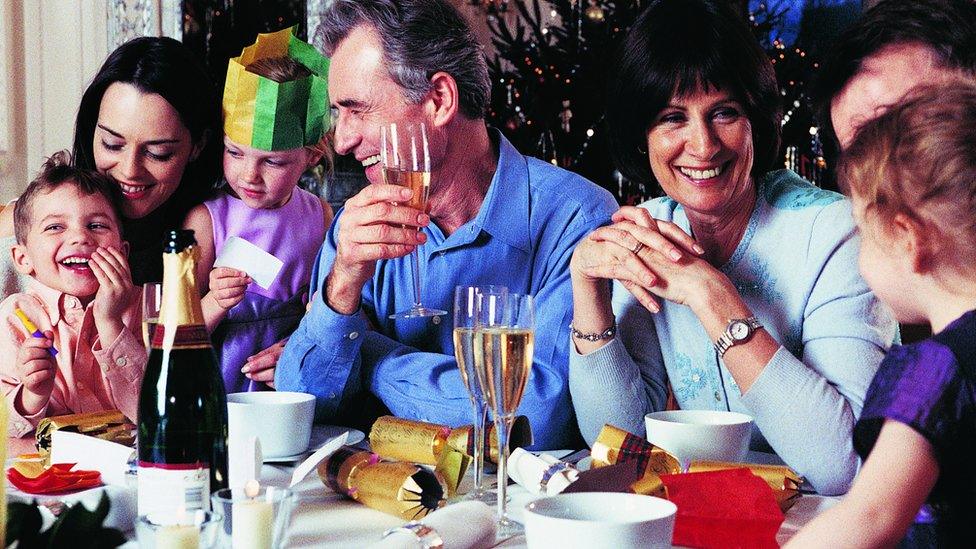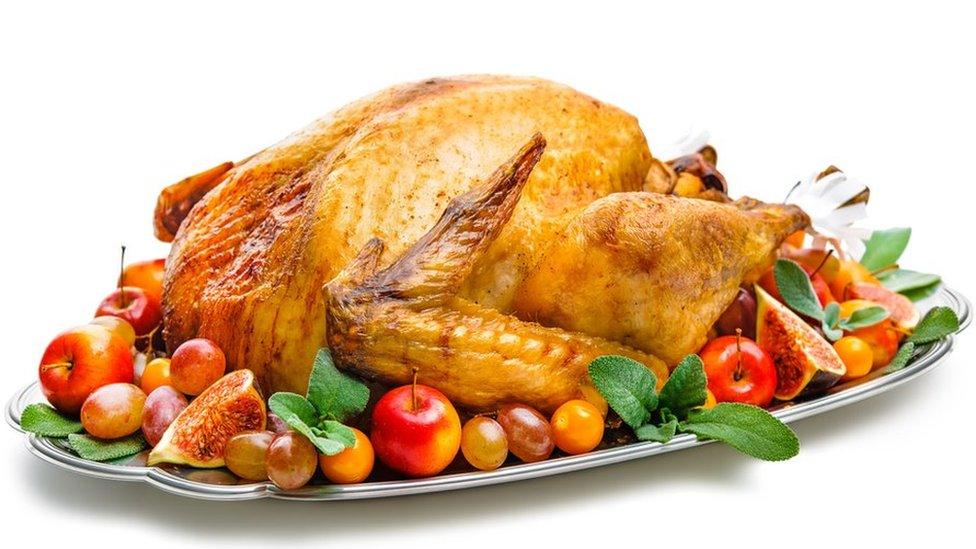Christmas 2016 may be the cheapest ever
- Published
- comments

While many like to moan that the cost of Christmas seems to go up every year, the truth may be exactly the opposite.
According to an index that tracks seasonal food, the price of Christmas dinner is now at its lowest since it started in 2009.
A separate calculation suggests that Christmas trees, too, are getting cheaper, costing just an eighth of what they did back in 1975.
One reason for falling prices may be the arrival of low-cost supermarkets.
However, the increasing cost of importing food may mean that Christmas 2016 will mark the low point for prices.
The Christmas dinner index - compiled by Good Housekeeping magazine - suggests that the 11 ingredients necessary are now 10.8% cheaper than they were in 2009.
Buying everything from the turkey to Christmas pudding is likely to cost £2.48 a head this year, if you bought each in the cheapest supermarket.
In 2009, the equivalent cost was £2.78, according to the index.


'Think carefully'
Separate research that goes back as far as 1968 comes to a similar conclusion.
The figures suggest that Christmas dinner last year was the cheapest on record, at £37.37 for a family of four.
Back in 1975 the same dinner cost nearly £55, after adjusting for inflation, according to the home interiors firm Hillarys, which compiled the research, external.
Last year a Christmas tree cost an average of £24.99, compared with the equivalent of £208 in 1975, it says.

The reduction in the average cost of this year's Christmas dinner is largely down to the German supermarkets Aldi and Lidl.
Buying all 11 ingredients to feed eight people will cost as little as £22 at Aldi, the Christmas dinner index shows.
The same ingredients would cost nearly £50 at Marks and Spencer.
"While five of the supermarkets have cheaper baskets this year, it's mainly thanks to the big decrease in the cost of these groceries at Aldi and Lidl that the overall basket is significantly cheaper," said Caroline Bloor, the consumer director of Good Housekeeping.
"So think carefully where you shop or you could end up paying twice as much."
But with widespread warnings about the increased cost of importing food, many shoppers may not find prices so cheap next year.
The warnings follow the decline in the value of sterling, as a result of the European referendum in June.